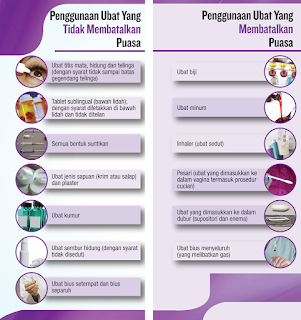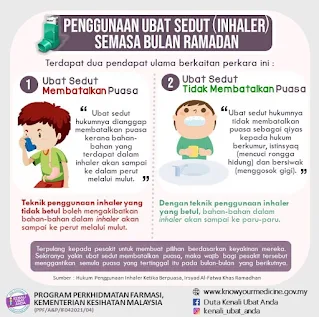Ramadan
Introduction
Ramadan
- Followers must refrain from eating and drinking between dawn and sunset, and must also abstain from using oral medications, sexual activity and smoking.
- Exemptions include the elderly, children, the sick, those who are traveling (journey >89 km) and breastfeeding or pregnant women. Instead, they can honour Ramadan through charity, such as by feeding a less privileged person in lieu of fasting.
Medical Treatments that DO NOT nullify fasting
- Use eye drops, ear drops and ear cleaning (provided no limit to the eardrum).
- Sublingual tablet (beneath the tongue) provided placed beneath the tongue and not swallowed.
- Perform dental procedures; fillings, extractions, cleaning teeth or brushing provided the individual who fasted did not swallow any substance during the treatment procedure.
- All types of injections either through layers of skin, muscles, joints or blood vessels.
- Donation, blood transfusion or blood sampling for laboratory tests.
- Applying cream or ointment, bandages and plaster to the skin surface.
- Inserting a catheter through blood vessels for inspection purposes, such as angiogram procedure to examine the heart.
- Laparoscopy, i.e. internal examination using a tool inserted through the abdominal wall to check the interior part of the body.
- Mouthwash gargle (almost to the throat) and therapeutic medicine spray to the mouth provided nothing is swallowed.
- Undergoing a biopsy.
- Use the nasal spray without inhaled.
- Half or local anaesthesia.
- Use of haemorrhoids medicine by re-entering the piles into place without involving the deep area.
Medical Treatments that NULLIFY fasting
- Taking oral medicines such as tablet or syrup.
- Use inhalers for the treatment of asthma or chronic lung disease.
- Entering any small tube (pessary) or medicine into the vagina including douching and internal inspection procedures.
- Introduction of any catheter tube, screening tools in the urinary tract (urethroscope) in men or women, barium or cleaning of the bladder.
- Use enemas, suppositories tubes, proctoscope or finger inserted into the anus or rectum for examination.
- Use intestine binoculars (endoscope) or stomach binoculars (gastroscope) for the examination of digestive system.
- Full anaesthesia, which involves the use of gas.
Can You Use an Inhaler in Ramadan?
Islamic jurisprudence is not unanimous on whether inhalers invalidate fasting or not. The controversy is related to how the inhalers are classified.
- Some Muslim scholars believe that inhalers do not break the fast because of the gaseous nature of the inhaled agents.
- Other scholars disagree. They state that since the inhaled gases pass through the mouth and precipitate on the mucosa, they mimic food products. Consequently, they believe the use of the inhalers breaks the fast.
Regardless, patient using the reliever spray should administer the medication whenever need arises, even if it is during the daylight hours of Ramadan. If using the preventer inhaler, do so at Sahur and at Iftar.
Dosing schedule
For medications that taken multiple times during the day, recommended strategies include
- choosing long-acting formulations (e.g. sustained release) or
- changing dosing regimens to once or twice daily.
|
Frequency |
Time of taking |
|
|
Before food |
After food |
|
|
Once daily dosing |
1 hour before sahur |
After iftar |
|
Twice daily dosing |
1 hour before sahur After breaking the fast,
but before main meal OR 2 hours after Iftar |
After sahur After iftar |
|
Three times daily dosing |
1 hour before sahur After breaking the fast,
but before main meal Before bed |
After sahur After iftar Before bed |
|
Four times daily dosing |
Depending on type of
disease. Should seek advice from a doctor first. Advisable not to fast or use alternative medicines if any. |
|
For medication taken at nighttime, there is no change in administration
time.
NOTE:
- Sahur = pre-dawn meal
- Iftar = sunset meal.
Tips for Patients
- Having sahur (pre-dawn meal) and delaying it until just before fajr (dawn) time.
- Eating well, because if you eat too early or too little can lead to hypoglycaemia.
- Break the fast on time with 1-2 dates.
- Encouraged to take the main course after maghrib prayer. Avoid eating too much while breaking fast.
- Eat foods with less sugar, fat and salt.
- Take your medicines or insulin regimes according to the doctor’s instruction.
- Recognize the signs of hyperglycaemia, hypoglycaemia and dehydration (lack of body fluids).
- Break the fast as soon as if there are signs that can be harmful.
- A patient’s decision to fast should be made after careful discussion with their doctor. Supervision, education, personal care, nutrition and medications modifications can help patients control the disease in the month of Ramadan. If the guidelines and conditions can be complied with, fasting can be done safely and it does not become a big obstacle for the patient to fast.
External Links
- Penggunaan Ubat Semasa Ubat Ramadan Infografik
- Caring for Muslim Patients Who Fast During Ramadan, 2015
- Managing Medications during Ramadan Fasting, 2017
- How to manage asthma during Ramadan?, 2019
- Malaysia
- Fasting and Medicines, 2016
- Panduan Penggunaan Ubat-ubatan Dari Perspektif Islam, 2018
- Panduan Amalan di Bulan Ramadhan, 2015
- Panduan Puasa Bagi Pesakit, 2013
- Ramadan and Diabetes


Comments
Post a Comment